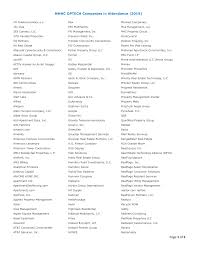
Real estate management involves the acquisition, operation and maintenance of real property. This includes residential and commercial real estate properties. This includes staff, equipment, and other capital assets.
Property management is an extremely complex business. A property manager must be familiar with the local rental market and understand the needs of tenants. They may also be responsible to manage maintenance, marketing, and conflict resolution. They will also need to be familiarized and able to apply federal statutes to their business.
Professional companies offer property management services. Many states require property managers be licensed. These property managers are usually licensed salespeople or realtors. Investors, developers, bankers, and appraisers are all other professionals who work in this area.
A typical property management service includes cost budgeting, tenant placement, advertising and marketing. A company can also offer financials, tax advice, and long-term planning strategies. Many times, financial statements are provided on a quarterly and yearly basis by these companies.

A property management company that is reliable and efficient can save you time and money. These companies can manage multiple properties at once and can be a resource for tenants. They can also respond quickly to tenant questions. Some also offer repair services.
A management fee is required when you work with a real-estate management company. This is typically 8% to 10% of the rental amount. However, the fee does not have to be paid until you've signed a contract with the company. Some companies also charge a set-up fee and a fee for letting tenancy.
Property managers can manage the maintenance and repairs, which is something that's not possible with traditional landlords. They are also able to recommend marketing strategies. They can help you increase your profits all year.
Tenant maintenance calls is one of the major drivers for property manager's success. Tenant issues are often a time-consuming task for landlords with rental properties. It is important to have a qualified property manager to help you.
Property managers are highly skilled in the industry and have the ability to manage multiple properties at once. They can also keep detailed financial reports. They can also provide reports online to their owners.

Property management is an investment. So it's important that you choose a company which will give you good value for your dollar. You and your tenants will have a more pleasant experience if you choose a good property management firm.
Property managers also need to be aware of laws, regulations, as well as other rules that govern rental property. They must be able evict tenants without notice if the tenant is not paying and to collect late payments. A contractor's policy is required. The last thing they should do is to be able comply with the terms and conditions of the lease.
Property management can be a good option for landlords who do not live nearby their rental properties. It can be time-consuming. It can be worth it if you have problems paying rent, tenants issues, or just want to relieve some of the stress.
FAQ
Why should I hire a handyman rather than doing it myself?
A handyman can save you time and money. Not only will you save time, but you also avoid the hassle of hiring another person. Plus, when you hire a handyman, he or she has all the necessary equipment and supplies needed to get the job done right.
What can a handyman do to install new fixtures and appliances?
A handyman can certainly help you out with these types of projects. Be sure to identify the appliance or fixture that will be installed before you start.
Are handymen insured?
Yes! Yes. Many insurance companies cover liability claims that exceed $1 million for bodily injuries and property damage. This means that you will be compensated by your insurance company if anything goes wrong during the project.
Is there anything I should do before I hire a handyman.
It's important that you find someone with experience working on your particular project. You should also check references and ask past customers. You might want to add extra cash to cover unexpected costs. You'll also want to ensure that he is licensed and insured.
How often do I need to hire a handyman
It depends on the nature of your project. If you are looking for a quick fix, like installing a lightbulb, you may only need one handyman per week. However, if there is a lot of remodeling involved, you could probably use several handymen over the course of the project.
Do you have the skills to fix my leaking faucets?
While a handyman might be capable of minor repairs and not needing the proper training, he or she will be able to take on larger projects such as wiring up a house, installing custom cabinets, or rewiring it. However, a handyman is capable of doing minor home improvement projects.
Statistics
- “Once the pandemic hit, that number fell to about 20%.” (inquirer.com)
- Another estimate was that the market in the United States was $126 billion and was increasing by about 4% annually. (en.wikipedia.org)
- “Before the pandemic, 40% of people asked how we could estimate a job when we weren't there,” Rose recalled. (inquirer.com)
- Our handyman services for seniors are provided by professional senior helpers who have been serving the community for over 20 years with 98% customer satisfaction. (cantatahomeservices.org)
- A franchise was approximately $110,000 with a franchise fee of $14,900, according to a spokesperson for a national handyman franchise. (en.wikipedia.org)
External Links
How To
How to replace a broken tile
Step 1 - Take out the old tiles.
Removing the tiles from your flooring is a good idea. These tiles should be kept intact in case you need them again. You can note the parts that are missing or damaged so that you can find replacements.
Step 2 – Choose New Tiles
Take a look at some different options available for tile replacement.
-
Find a tile that is identical to the one you are removing.
-
To find the matching piece, use the measurements that you took while removing the tile. This will allow you to quickly find the right size, without having to measure again.
-
Consider looking for colors, patterns, textures and sizes in a variety of shapes and colors.
-
Consider which grout you would like to use, if any. Some people prefer to use a single color, while others love mixing it up.
-
Choose a tile that resists moisture.
-
The final thing to consider is the location of the tile. It will save you time and money if you make sure there's enough space for the proper installation.
-
Once you've picked your tile, place an order online or call your local Lowe's location to place it.
Step 3: Install the tiles.
Install your tiles using the same method you used before. It's important to align them correctly in order for them to fit together.
Step 4 – Clean up
Be sure to vacuum up all crumbs and debris before applying the last layer.
This will prevent dirt and dust from settling into the cracks between the tiles that could cause mold.
Step 5 - Sand Down the Floor
After cleaning, sand the floors to remove any particles.
Step 6 – Finish Off
Once the floor is smooth, apply the protective coatings. Because wet paint can cause damage to the tiles' surfaces, it is important that you wait.
To help prevent stains, you could always use a product called 'damp-anddry' on your floors.
It won't solve every problem after your tiles are installed. For example, if you have a lot of kids running around, you may want to consider using an anti-slip coating on top of the protective layer.
Finally, do not forget to keep the protective sealer on for several more weeks before you move back into your home.